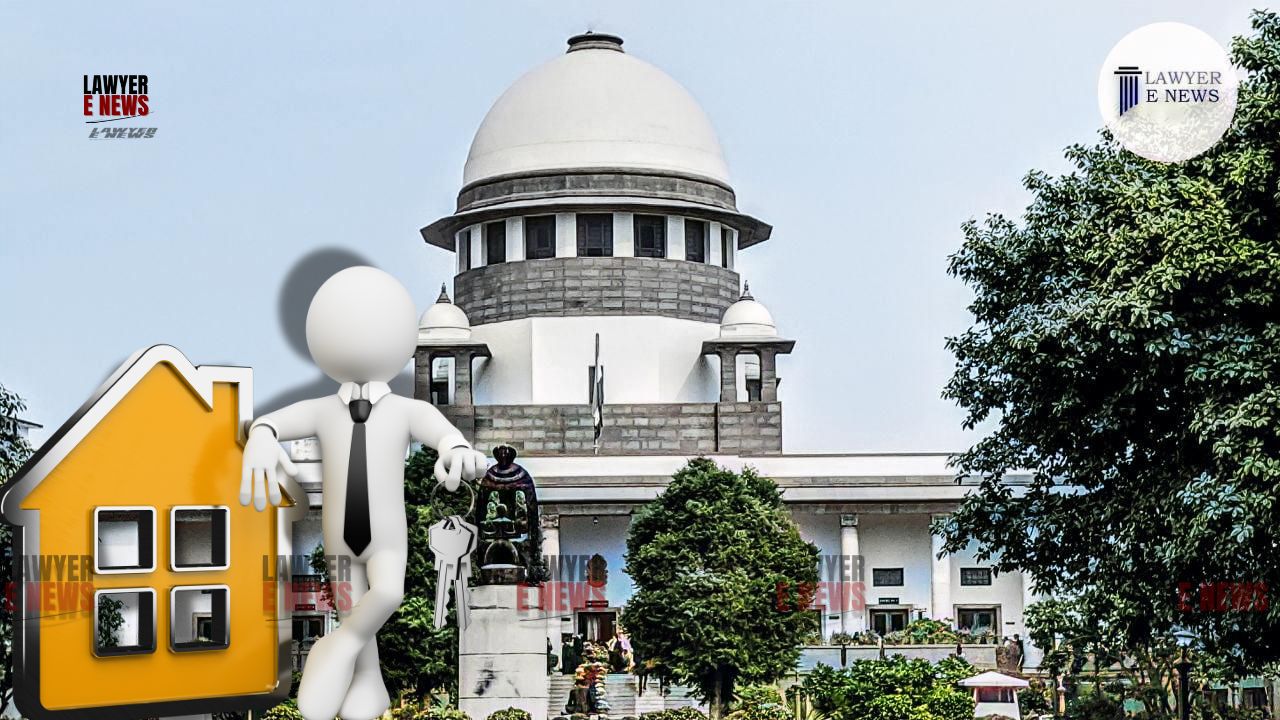-
by sayum
14 February 2026 2:22 PM



Companies Purchasing Property for Non-Commercial Use Can Seek Consumer Protection, Rules Apex Court. The Supreme Court of India has dismissed an appeal by Omkar Realtors and Developers Pvt. Ltd., thereby upholding the National Consumer Disputes Redressal Commission’s (NCDRC) order directing the company to refund over ₹7.16 crores with interest to Kushalraj Land Developers Pvt. Ltd. The judgment reinforces the protection provided to consumers under the Consumer Protection Act, 2019, even in cases involving complex real estate transactions.
Facts of the Case: Kushalraj Land Developers Pvt. Ltd., the respondent, had booked a flat in Omkar Realtors' luxury residential project 'Omkar 1973 Worli' in 2015, making a substantial payment of over ₹6.79 crores. The flat was meant for the residential use of one of its directors and his family. However, complications arose when the respondent discovered that the flat was allegedly reserved for another individual, Nakul Arya. Despite attempts to resolve the issue, Omkar Realtors cancelled the booking and forfeited the amount paid by the respondent, leading to a complaint filed with the NCDRC alleging deficiency in service and unfair trade practices.
Consumer Status of the Respondent: A key issue in the appeal was whether Kushalraj Land Developers could be considered a "consumer" under Section 2(7) of the Consumer Protection Act, 2019, as the appellant argued that the flat was purchased for commercial purposes. The Supreme Court, citing precedents including Lilavati Kirtilal Mehta Medical Trust v. Unique Shanti Developers and Crompton Greaves Limited v. Daimler Chrysler India, held that the flat was intended for personal use, and the respondent did not fall outside the ambit of a "consumer" merely because it was a corporate entity.
Deficiency in Service and Unfair Trade Practices: The Court found that Omkar Realtors had created confusion by allotting the same flat to two different parties, a practice that was resolved only after significant delay. The NCDRC had previously concluded that this constituted a deficiency in service and an unfair trade practice, a view that the Supreme Court upheld. The bench noted that the company’s actions, particularly the cancellation of the allotment and forfeiture of the respondent's deposit before resolving the double allotment issue, were unjustifiable.
The Court emphasized that the dominant purpose of purchasing the flat, as stated by the respondent, was for residential use by its director, which qualified them as a consumer under the law. The burden of proving otherwise rested on Omkar Realtors, which failed to provide adequate evidence. Furthermore, the Court supported the NCDRC's finding of deficient service, noting that the double allotment and subsequent forfeiture of the respondent’s payment were improper.
Justice Pankaj Mithal, delivering the judgment, stated, "The appellant was guilty of adopting unfair trade practices and since there was double allotment of the flat, there was deficiency in service." The judgment further highlighted that "the confusion of double allotment, notwithstanding some litigation in court, persisted until it was resolved."
This decision by the Supreme Court serves as a significant affirmation of consumer rights in the real estate sector. By dismissing the appeal, the Court has underscored the importance of accountability and fairness in real estate transactions, ensuring that consumers are protected against arbitrary actions by developers. The ruling also clarifies that companies purchasing properties for non-commercial purposes can seek remedies under the Consumer Protection Act.
Date of Decision: August 23, 2024.
Omkar Realtors and Developers Pvt. Ltd. vs. Kushalraj Land Developers Pvt. Ltd. & Anr.
